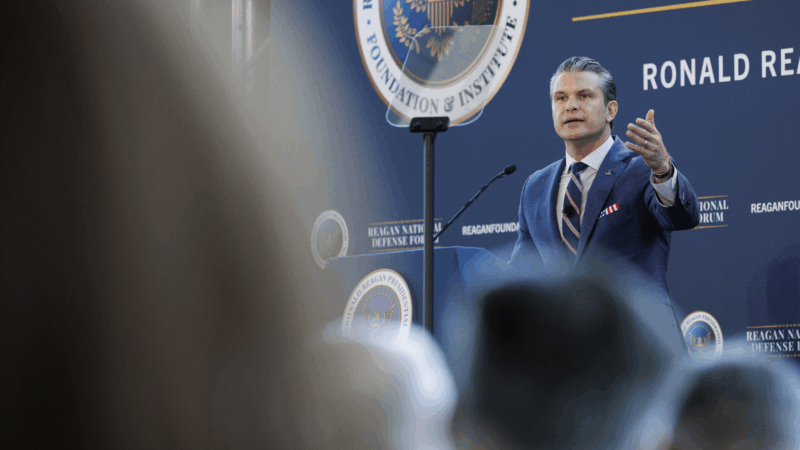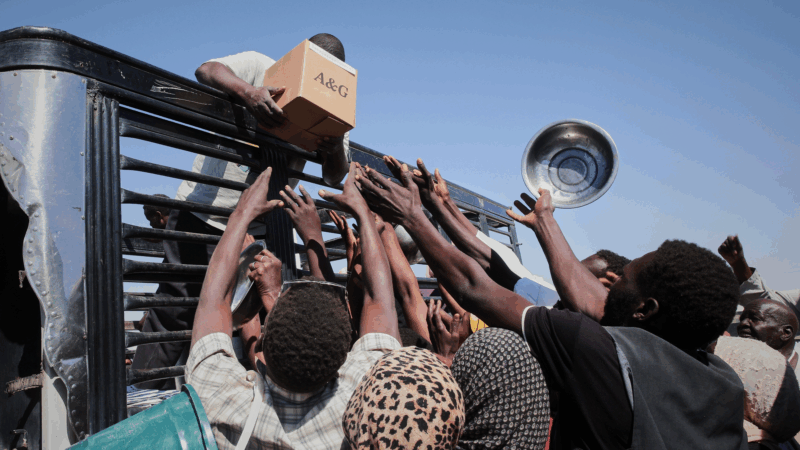Birmingham is 3rd worst in the Southeast for ozone pollution, new report says
Air quality has been improving nationally in the decades since the Clean Air Act passed, but some areas in the Gulf South still have work to do, according to a report from the American Lung Association.
For its “State of the Air” report, which released Wednesday, the nonprofit analyzed the amount of ozone and particle pollution in the air throughout the U.S. from 2020 to 2022, using data provided by the U.S. Environmental Protection Agency.
For particle pollution, it examined both short-term spikes in pollution, which can still be dangerous, and the year-round average level of particle pollution.
A few areas in the Gulf South received failing grades. Here is an overview of our region:
Mississippi
The Jackson metro area was among the places that received a failing grade – a “C.”
Data showed year-round particle pollution was a problem. The location averaged 1 unhealthy day per year.
The area was ranked second worst in the Southeast for its particle pollution, caused by factors such as more industry than can cause particle pollution being based in the metropolitan area and more transportation.
“People are using their vehicles, which are causing vehicle emissions, diesel trucks and other cars, heavy-duty cars that are contributing to the unhealthy air quality,” said Ashley Lylerly, the Director of Advocacy for the ALA.
Louisiana
According to the report, the Baton Rouge metro area is one location in the Gulf South that has both heavy particle and ozone pollution. Iberville Parish, which neighbors East and West Baton Rouge parishes, averages 4.5 days of unhealthy ozone levels yearly — an “F” grade.
“We know that we have climate change that’s happening,” Lyverly said. “We look at ozone as really sort of that irritant to the lungs. It can even cause a sort of an individual burning in your lungs.”
Some parishes in Cancer Alley, the region between Baton Rouge and New Orleans with a high concentration of petrochemical plants and refineries, didn’t collect data on particle pollution. Lyerly said that state agencies and the EPA should partner to get more monitors in place for a more complete picture.
Alabama
While Birmingham received a passing grade for ozone levels, it still tied for the third-worst ozone pollution level in the Southeast.
Earlier this year, the EPA strengthened its restrictions on particle pollution. The report used this higher standard for its grading to capture more populations that could be at risk of fine particle pollution than previously recognized. The ALA also hopes to implement stronger standards for ozone pollution.
“What we hope is those stronger standards will result in better air quality,” Lyerly said. “We have restrictions that will be put in place for certain industries so that they won’t be able to emit as much air pollutants.”
Recommended policy changes
Despite decades of progress, the report found that 39% of Americans — or more than 131 million people — still live in places with failing grades for ozone or particle pollution. That’s almost 12 million more people when compared to last year’s report.
To improve air quality, the ALA made the following recommendations:
- Nationally, the ALA recommends more investments in clean energy, air quality monitoring and environmental justice.
- States are encouraged to use the Clean Air Act to adopt zero-emissions standards for cars and trucks.
- Local governments should adopt a climate action plan.
- Individuals can take advantage of new tax incentives available through the Inflation Reduction Act to reduce emissions from their homes and vehicles.
You can read the ALA’s full report here.
This story was produced by the Gulf States Newsroom, a collaboration between Mississippi Public Broadcasting, WBHM in Alabama, WWNO and WRKF in Louisiana and NPR.
Light from satellites will ruin majority of some space telescope images, study says
Astronomers have long been concerned about reflections from satellites showing up in images taken by telescopes and other scientific instruments.
Defense Department is reviewing boat strike video for possible release, Hegseth says
In a speech on Saturday, Defense Secretary Pete Hegseth defended the strikes, saying: "President Trump can and will take decisive military action as he sees fit to defend our nation's interests."
Bama, Miami in, Notre Dame out and Indiana No. 1 in College Football Playoff rankings
Nobody paying attention for the past 24 months would be surprised to see Indiana – yes, Indiana – leading the way into this year's College Football Playoff.
McLaren’s Lando Norris wins first F1 title at season-ending Abu Dhabi Grand Prix
Red Bull driver and defending champion Max Verstappen won the race with Norris placing third, which allowed Norris to finish two points ahead of Verstappen in the season-long standings.
A ban on feeding pigeons ruffles lots of feathers in Mumbai
The pigeon population has exploded — a result of people feeding the birds. For some it's a holy duty and a way to connect to nature. Critics point to health risks tied to exposure to pigeon droppings.
UN humanitarian chief: world needs to ‘wake up’ and help stop violence in Sudan
The UN's top humanitarian and emergency relief official has told NPR that the lack of attention from world leaders to the war in Sudan is the "billion dollar question".








